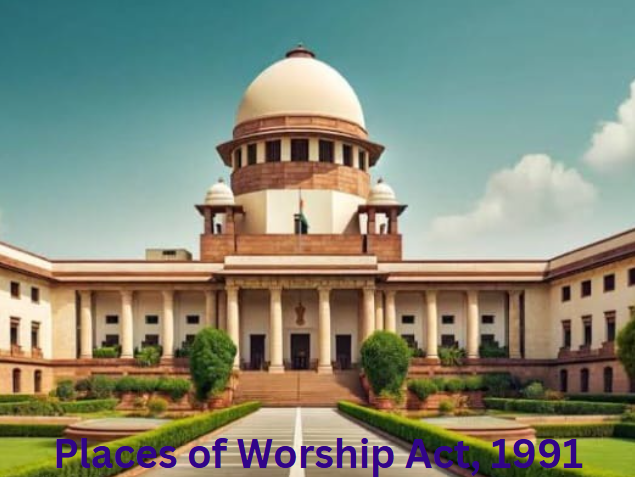– Abdul Bari Masoud
New Delhi: The Congress has filed an intervention application in the Supreme Court, opposing petitions challenging the Places of Worship (Special Provisions) Act, 1991. The party contended that these petitions are “motivated and malicious attempts to undermine established principles of secularism.”
In its application, submitted through MP and party general secretary K.C. Venugopal, Congress underscored that the 1991 Act embodies secular character of the nation and reflects the popular mandate. Passed during the 10th Lok Sabha, when the Congress and Janata Dal held a majority, the law aims to preserve the religious status of structures as they existed on August 15, 1947.
The Congress emphasised its commitment to India’s secular identity, pointing out that the PoWA was part of its 1991 election manifesto. The party also highlighted its active role in the Act’s enactment, arguing that it remains vital for safeguarding secularism in India.
“The PoWA is essential to protect secularism in India, and the current challenge appears to be a motivated and malicious attempt to undermine this fundamental principle,” the plea stated. It further noted that the legislation was enacted by Parliament based on a popular mandate and in line with the Supreme Court’s Ayodhya verdict, which affirmed the Act’s consistency with the duties of a secular state.
The Congress also dismissed claims that the Act discriminates against specific communities. Citing Section 2(c) of the Act, which inclusively defines “places of worship” as temples, mosques, churches, gurudwaras, monasteries, or other sites of public religious worship, the party argued that the law promotes equality among all religious groups.
The application referenced the Supreme Court’s earlier rulings and emphasised that the Act aligns with fundamental rights under Articles 25, 26, 27, and 28 of the Constitution. It countered arguments that the law infringes upon Article 25, which guarantees religious freedom.
The Supreme Court, led by CJI Sanjiv Khanna, has agreed to hear AIMIM president Asaduddin Owaisi’s plea for the effective implementation of the Act. This follows a separate application by the Akhil Bhartiya Sant Samiti, which sought to intervene in challenges to the Act.
While hearing multiple petitions, including one filed by BJP leader and lawyer Ashwini Upadhyay, the Supreme Court has restrained lower courts from entertaining fresh suits or issuing orders in ongoing cases related to reclaiming religious places.
Upadhyay’s 2020 petition argues that the Act arbitrarily freezes the status of places of worship in 1947, thereby violating fundamental rights under Articles 14 and 25 of the Constitution. However, groups supporting the Act, including the Gyanvapi Mosque managing committee and Maharashtra MLA Dr. Jitendra Satish Awhad, argue that the law is crucial for preserving social harmony and ensuring interfaith cooperation.
The Union Government has yet to file its counter-affidavit in response to the petitions.




